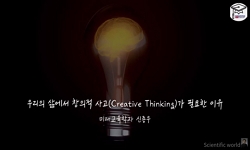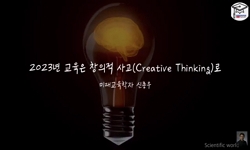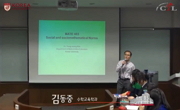The purpose of this study is to seek nurturing talent in the fourth industrial revolution. The fourth industrial revolution is a period of ‘Convergence’ without boundary between studies. Nurturing talent, therefore, in the fourth industrial revol...
http://chineseinput.net/에서 pinyin(병음)방식으로 중국어를 변환할 수 있습니다.
변환된 중국어를 복사하여 사용하시면 됩니다.
- 中文 을 입력하시려면 zhongwen을 입력하시고 space를누르시면됩니다.
- 北京 을 입력하시려면 beijing을 입력하시고 space를 누르시면 됩니다.
4차 산업혁명시대의 인재양성과 창조교육 = Nurturing Talent and Creativity Education in the Fourth Industrial Revolution
한글로보기https://www.riss.kr/link?id=A105224642
- 저자
- 발행기관
- 학술지명
- 권호사항
-
발행연도
2017
-
작성언어
Korean
- 주제어
-
자료형태
학술저널
-
수록면
1-22(22쪽)
- 제공처
- 소장기관
-
0
상세조회 -
0
다운로드
부가정보
다국어 초록 (Multilingual Abstract)
The purpose of this study is to seek nurturing talent in the fourth industrial revolution.
The fourth industrial revolution is a period of ‘Convergence’ without boundary between studies. Nurturing talent, therefore, in the fourth industrial revolution should be the education focusing on personality, sensibility, and creative thinking. The education for convergence is to cultivate human creativity.
The vision of the future talent for the fourth industrial revolution is to display diversity of convergence by ‘thinking power’ as creative professionals to create the new knowledge coming from integrated sight of every field. That is the talent of creative professionals to be the origin of added value of particularity layng stress on originality and discrimination.
Education needs to provide jobs, capabilities, and creative professionalism of personality to industrial society through creativity education. Accordingly. customized education considering individual’s capabilities and characteristics should be sought so that individual education can be performed to meet each learner’s creative capabilities.
The future talent in the fourth industrial revolution is those who are equipped with diversity by the ‘thinking power’ to create value. The creativity education to cultivate the ‘thinking power’ can be realized by the educational method of Idea-Discovery-Digging-Manifestation- Development of the five stages of teaching-learning in creativity education.
The stage of Idea is that of imagination from which the ‘thinking power’ beginsm showing independent, original and distinctive thought.
The stage of Discovery is the process that the ‘thinking power’ obtains unity and order gradually, expressing the content of the stage of Idea concretely.
The stage of Digging is the process of making purposive and incorporated conception toward the new value, changing the ‘thinking power’ to reasonable and systematic conception.
The stage of Manifestation is the process of composing the content by systematically arranging the ‘thinking power’ that is collected from the stage of Digging.
The stage of Development is the process of creating value, showing original, distinctive, and creative capabilities by accomplishing the ‘thinking power’.
The vision of the future talent in creative education is that of creating the new knowledge through consilience and convergence, as professionals displaying diversity of convergence is the education to build up original, distinctive, and creative capabilities through creativity education.
동일학술지(권/호) 다른 논문
-
- 창조교육학회
- 김정아 ( Kim Jeong-a )
- 2017
-
- 창조교육학회
- 박성희 ( Park Seong-hie )
- 2017
-
- 창조교육학회
- 류성창 ( Ryoo Sung-chang )
- 2017
-
- 창조교육학회
- 이강산 ( Lee Kang-san )
- 2017
분석정보
연관 공개강의(KOCW)
-

우리의 삶에서 창의적 사고(Creative Thinking)가 필요한 이유
신한대학교 신종우 -

2023년 교육은 창의적 사고(Creative Thinking)로
신한대학교 신종우 -

Creativity and Character Education through Mathematics
고려대학교 김동중 -

Big Ideas for Small People: Lesson Analysis
Teachers TV Teachers TV -

Ideas from the Box: Inclusion and Vocational Education
Teachers TV Teachers TV





 KISS
KISS


